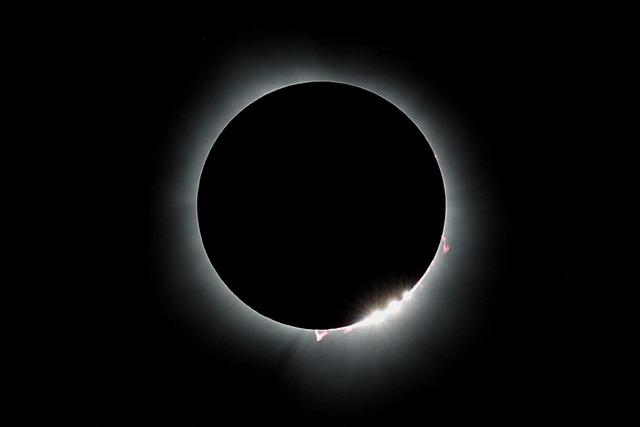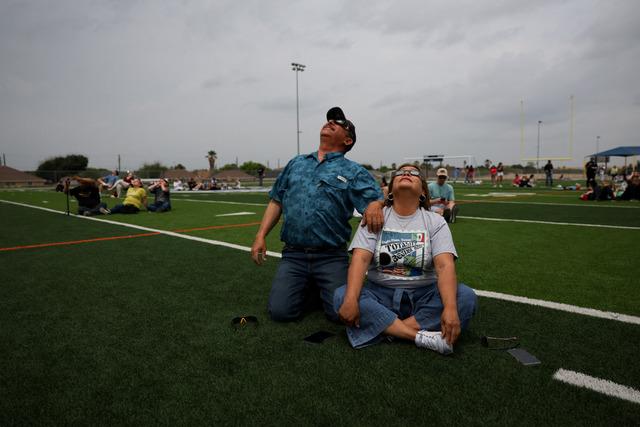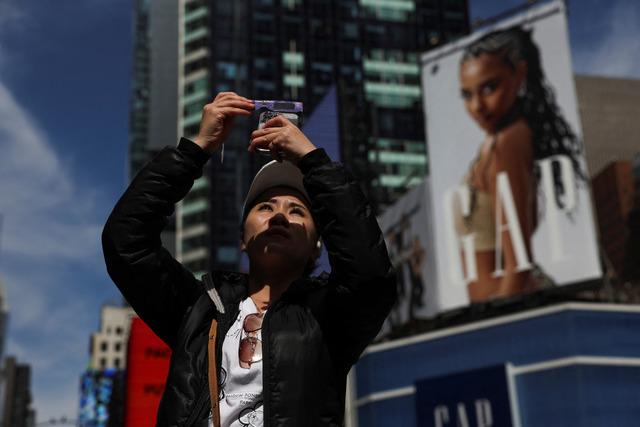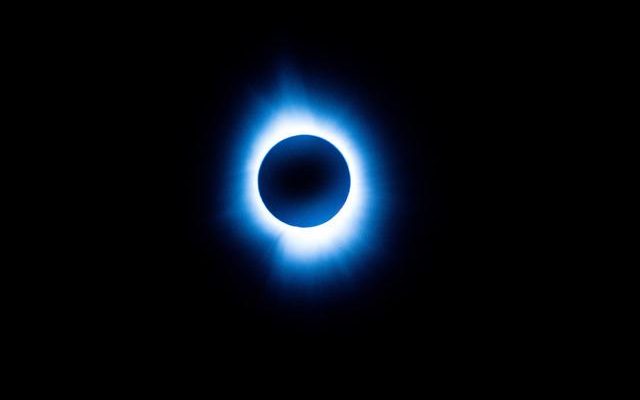The first total solar eclipse of 2024, which fascinated millions in North America, graced the sky yesterday. The solar eclipse, which started at 11.07 local time in Mazatlan, Mexico, moved towards the northeast of the USA and ended in Canada at 17.16.
The total eclipse followed a route 6 thousand 437 kilometers long and 186 kilometers wide over Mexico, the USA and Canada, where approximately 44 million people live.
In the USA, Dallas, Idabel, Littler Rock, Poplar Bluff, Paducah, Carbodale, Evansville, Cleveland, Erie, Buffalo, Burlington, Lancaster and Caribou were the main cities where the eclipse was observed.
While millions of people in Mexico, the USA and Canada flock to the regions where the total eclipse will take place to witness this rare astronomical event, it is recommended to use certified Solar eclipse glasses that block infrared and ultraviolet light to observe the eclipse.
Cultural and scientific events for enthusiasts were organized in many places due to the solar eclipse; In some regions, authorities tried to take security measures by declaring an emergency due to excessive traffic and human influx due to “solar eclipse tourism”.

THE INCREASE IN EYE PAIN REACHED THE HIGHEST LEVEL DURING TASTE RETENTION
While this short show, which occurs when the Moon passes between the Earth and the Sun in the sky, fascinates the audience with the dance of light and darkness, a trend emerged in the digital field.
According to the information compiled by the AA correspondent from search engine statistics, there was a noticeable increase in online searches related to eye pain before, during and after the eclipse across the USA.
Of the approximately 32 million people in the United States who were in the path of the total solar eclipse, those who felt discomfort in their eyes began to search for the cause of this situation on internet search engines.
According to Google Trends statistics showing the frequency of word searches, the frequency of searches for the phrases “My eyes hurt” and “Why do my eyes heart?” in the Google search engine increased simultaneously during the hours when the partial eclipse started in the USA. started.

While there was a significant increase in the frequency of searches for the phrase “My eyes hurt” during the total eclipse, it reached its highest level between 14.30 and 15.00 local time, when the total eclipse reached maximum visibility in many states.
As the solar eclipse ended, the frequency of searches for the phrase dropped significantly at 16:00 local time, and remained fluctuating in the following hours.
The top 5 states contributing to this increase were New Hampshire, West Virginia, Arkansas, Indiana and Rhode Island.
This suggests that many people may have ignored safety precautions while viewing the eclipse and only noticed the consequences when their eyes began to hurt.
However, similar complaints and a similar increase in search frequency were also observed during the last total solar eclipse seen in the USA in August 2017.

MAY DAMAGE THE SENSITIVE TISSUE OF THE RETINA
While witnessing a solar eclipse is a fascinating experience, this increase in search engine results points to the need for awareness about the potential dangers of unprotected sun gazing.
One of the main reasons why eyes hurt after observing a solar eclipse is due to the harmful effects of direct sunlight on the retina.
Looking directly at the sun during an eclipse can cause serious damage to the eyes.

While intense solar radiation can damage the sensitive tissues of the retina, it can lead to a condition known as solar retinopathy, which manifests itself as eye pain, blurred vision and even permanent vision loss.
It is important to use appropriate eye protection, such as special sun viewing glasses or hand-held solar filters, during solar events. Thus, while being protected from harmful radiation, possible eye injuries can also be prevented. (AA)

